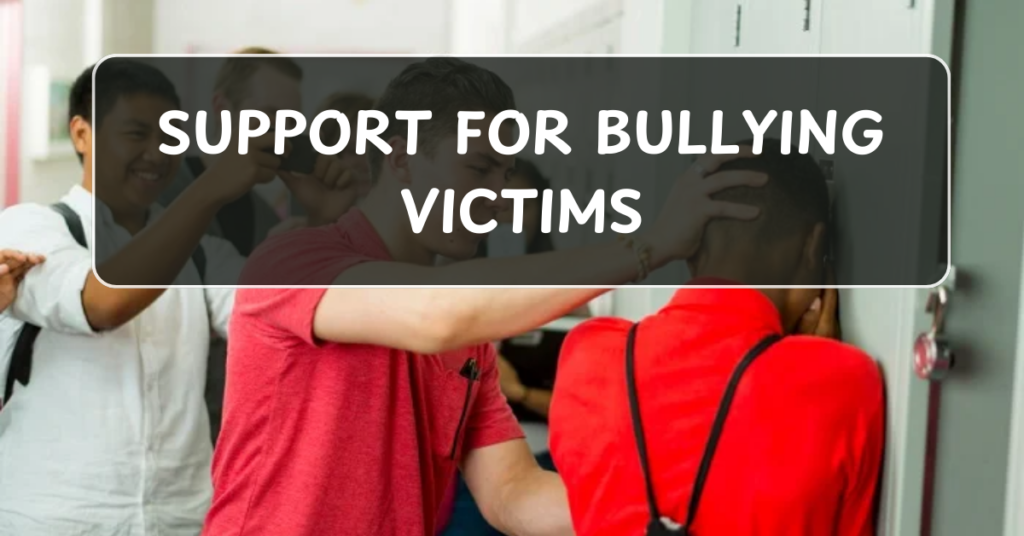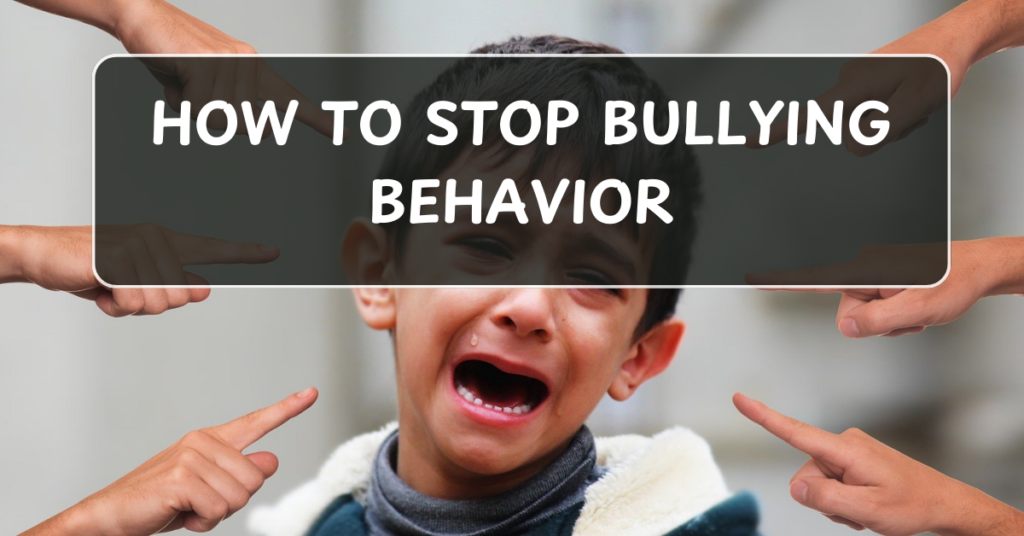
Bullying can leave deep emotional scars that affect the victim’s mental, emotional, and even physical well-being. Whether it happens in school, the workplace, or online, the effects can be long-lasting. Fortunately, with the right support, victims of bullying can recover, regain their confidence, and learn how to navigate future challenges in a healthier way.
In this article, we will explore different ways to provide support to bullying victims, helping them to heal, find strength, and thrive.
>> Put An END to Bullying NOW: Click Here to Learn How <<
1. Listen and Validate Their Feelings
One of the most important forms of support for bullying victims is simply offering a safe, non-judgmental space where they can express their feelings. Often, victims of bullying feel isolated, misunderstood, and ignored, so giving them a chance to talk is crucial.
- Create a safe environment: Ensure the victim feels comfortable and secure when talking about their experience. Let them know their feelings are valid and that it’s okay to express what they’ve gone through.
- Be empathetic: Listen actively and without judgment. Avoid interrupting or trying to “fix” the situation immediately. Sometimes, the best support is simply being a compassionate listener.
- Acknowledge their pain: Validate their emotions by acknowledging the seriousness of what they’ve experienced. Phrases like “I’m really sorry you had to go through that” can help the victim feel understood.
2. Provide Professional Counseling and Therapy
Victims of bullying may experience a wide range of emotional struggles, including depression, anxiety, and feelings of worthlessness. Professional counseling and therapy can be an important step toward healing.
- Therapists and counselors: Mental health professionals can help bullying victims process their emotions, develop coping strategies, and work through trauma. Cognitive Behavioral Therapy (CBT) and other therapeutic approaches can be especially effective.
- Support groups: Group therapy or support groups for bullying victims can help individuals connect with others who have faced similar experiences. Sharing and hearing others’ stories can reduce isolation and provide validation.
- Focus on self-esteem: Therapists can work with victims to rebuild their self-esteem and self-worth, which may have been damaged during the bullying.
3. Encourage Open Communication with Trusted Adults
Victims of bullying, particularly younger individuals, may feel scared or embarrassed to reach out for help. Encouraging them to communicate openly with trusted adults can provide additional support.
- Parents and guardians: Parents or guardians can provide emotional support, advocate for their child, and help navigate the steps for reporting bullying. They should approach the situation with understanding and a willingness to help.
- Teachers and school staff: In a school setting, teachers, counselors, and school administrators should be approached for help in addressing the bullying. Educators can work with parents and students to ensure a safe and supportive learning environment.
- Workplace leaders: In a professional environment, victims of workplace bullying should reach out to HR, managers, or other authority figures who can intervene and offer support.
4. Create a Support Network
Having a support network is essential for victims of bullying, as it provides them with a sense of security and belonging. Friends, family, and peers can offer practical and emotional support that encourages the victim to feel less alone.
- Reach out to friends and family: Encourage the victim to lean on supportive friends and family members. A strong social network can provide emotional comfort and reassurance during tough times.
- Join online communities: Online forums or social media groups can help bullying victims find a sense of belonging and share their experiences in a safe space.
- Be consistent: Let the victim know that the support system is there for them consistently, whether they need to talk, need help navigating the situation, or need distraction.
5. Educate and Empower the Victim
Helping bullying victims understand their experience and how to respond to it can be a crucial step in healing. Education empowers victims and helps them regain a sense of control over their lives.
- Teach coping strategies: Provide the victim with coping techniques for handling the emotional aftermath of bullying, such as deep breathing, mindfulness, journaling, or physical exercise.
- Empowerment through action: Help the victim understand their right to stand up for themselves. If they are comfortable, they can work on ways to assert their boundaries and take action against the bullying, such as reporting it or addressing it directly.
- Promote resilience: Encourage the victim to focus on their strengths and remind them that they are not defined by the bullying they’ve experienced. Building resilience is an ongoing process that can be nurtured through positive reinforcement.
>> Put An END to Bullying NOW: Click Here to Learn How <<
6. Help the Victim Navigate Legal and Institutional Support
Sometimes, bullying escalates to a level where legal or institutional intervention is required. If bullying involves harassment, threats, or violence, it’s important to understand the legal avenues available to victims.
- Know the law: Familiarize yourself with local, state, and national laws that protect individuals from bullying, harassment, and discrimination. In some cases, bullying can be illegal, and the victim may be entitled to legal protection.
- Workplace policies: Employers have a responsibility to ensure their employees are safe from bullying. If bullying occurs in the workplace, HR departments or unions may be able to intervene.
- School policies: Schools often have anti-bullying policies in place, and victims should be aware of their rights and how to report incidents. Advocating for a victim’s rights within these systems is crucial in preventing further harm.
7. Encourage Participation in Positive Activities
In addition to professional support, engaging in positive activities can help bullying victims regain confidence, meet new people, and focus on personal growth.
- Hobbies and interests: Encourage the victim to engage in activities they enjoy or try new hobbies that bring joy. This can help shift focus away from negative experiences and build new, positive associations.
- Physical exercise: Exercise is a proven way to boost mental health, reduce stress, and increase endorphins, which can help victims cope with negative emotions.
- Volunteering: Helping others through volunteer work or charitable activities can create a sense of purpose and boost the victim’s self-esteem while making a positive impact on others.
8. Be Patient and Understanding
Healing from the effects of bullying can take time. Victims may experience setbacks and challenging emotions during their recovery process. It’s important to be patient and understanding throughout this journey.
- Give them time: Allow the victim the time they need to process their experience and heal at their own pace. There’s no set timeline for recovery, and it’s important to respect their emotional boundaries.
- Avoid pressure: Be supportive without pressuring the victim to “move on” or “get over it.” Everyone heals differently, and the road to recovery is unique for each individual.
Conclusion: The Power of Support
Supporting bullying victims is vital to their recovery and long-term well-being. By offering a combination of emotional, psychological, and practical support, we can help victims heal and rebuild their confidence. Through empathy, education, and a strong support network, we can empower them to take control of their lives and rise above the pain caused by bullying. Together, we can make a difference in helping bullying victims overcome their struggles and move forward stronger than ever before.


